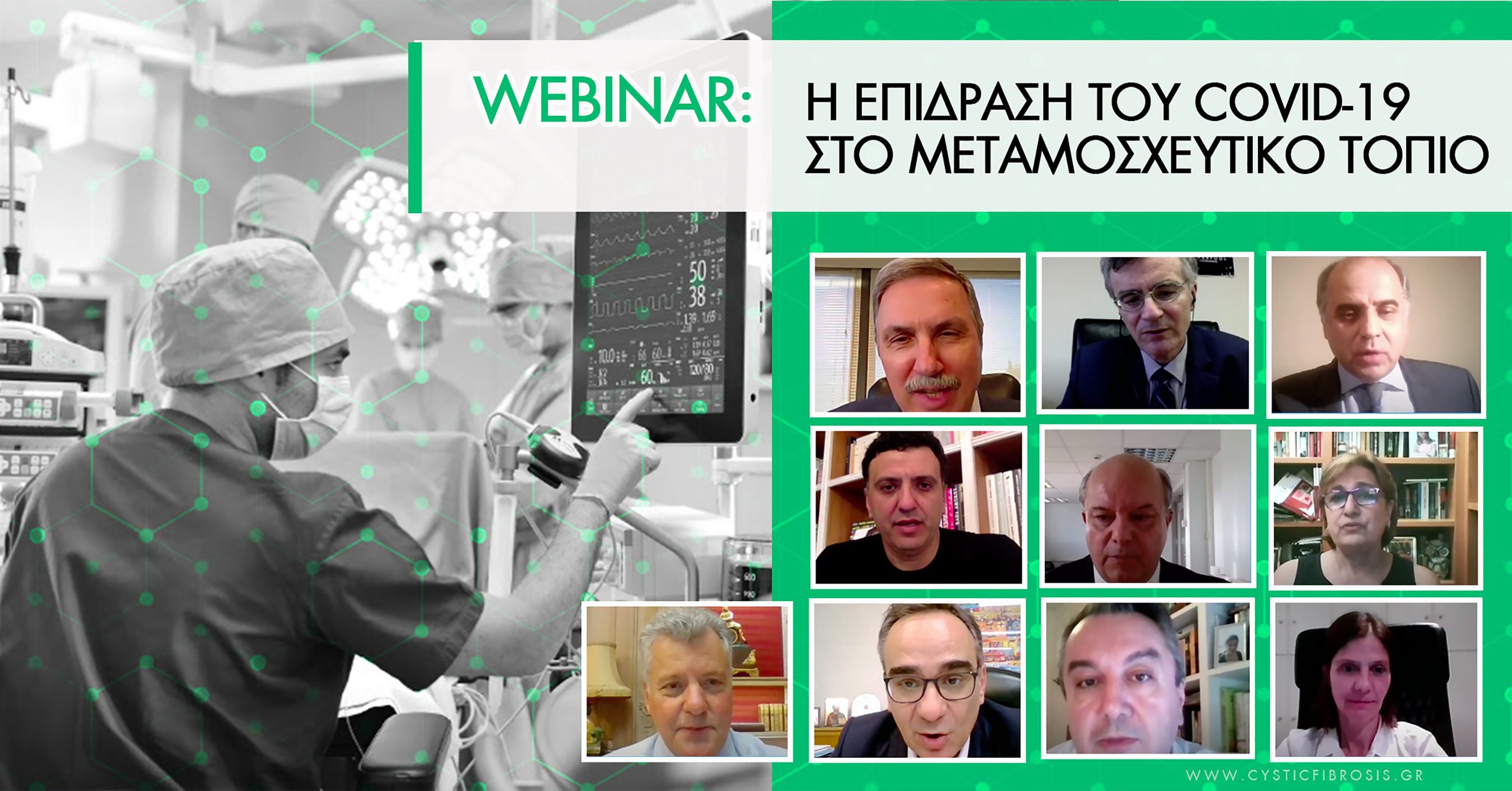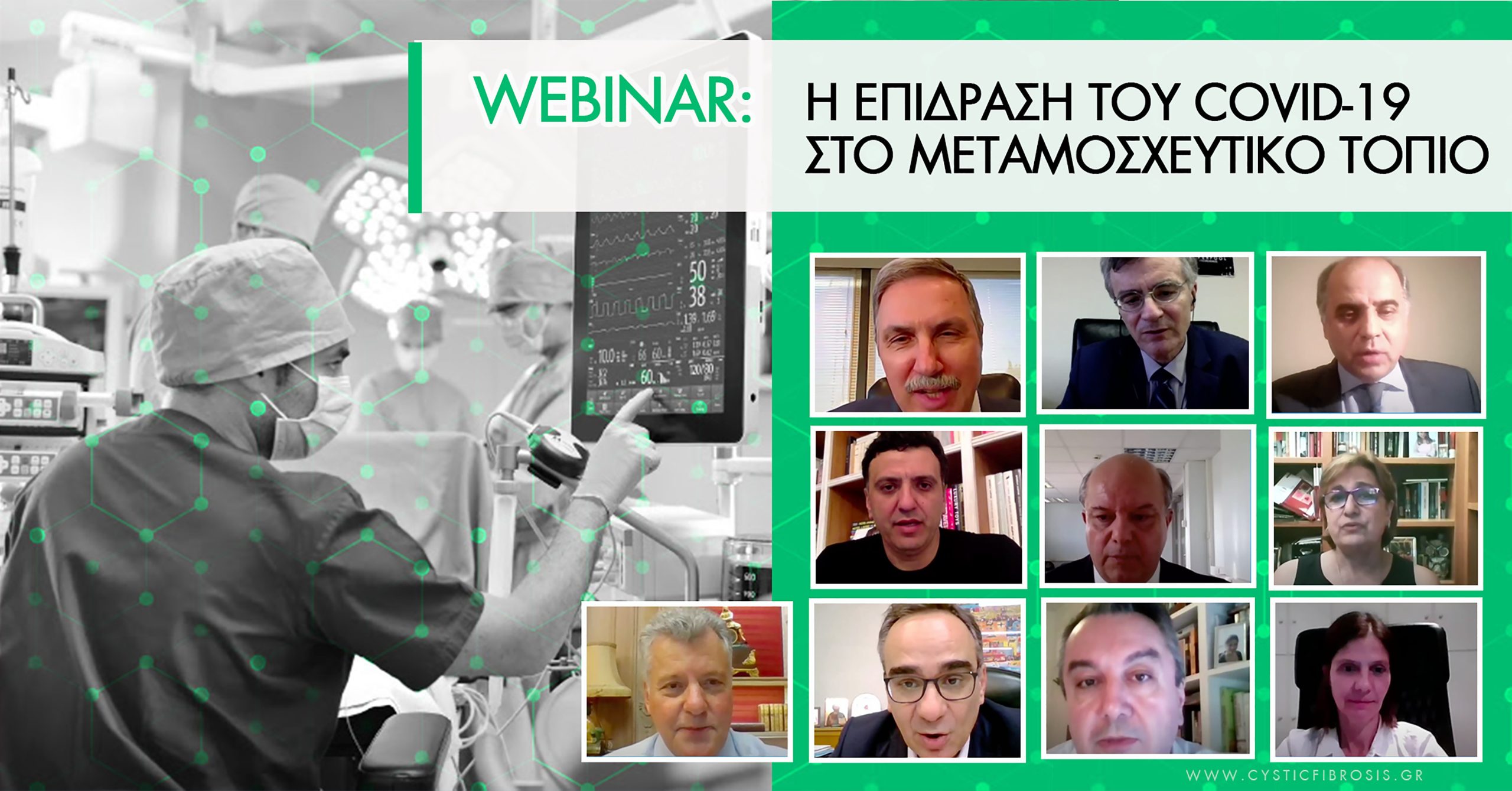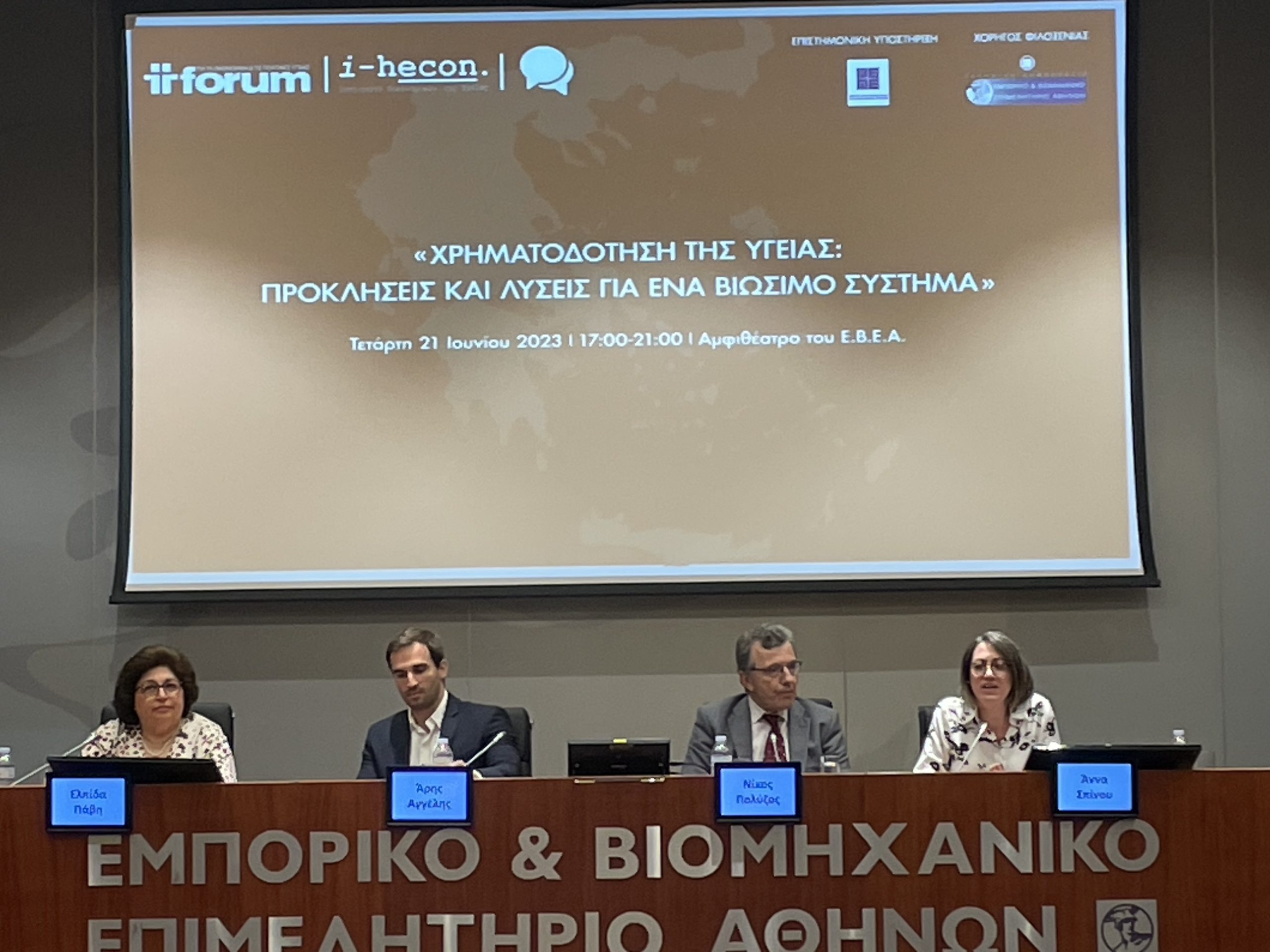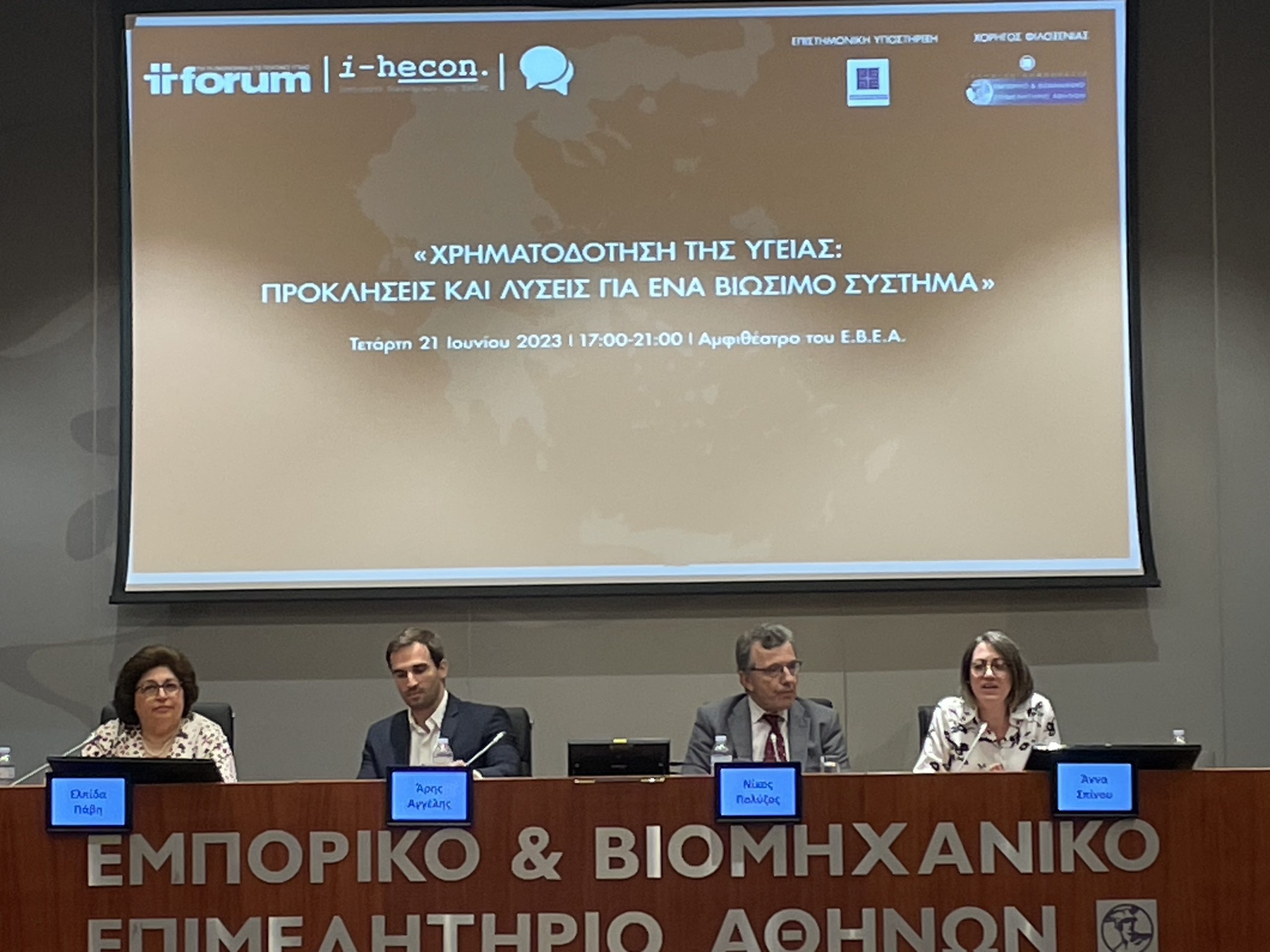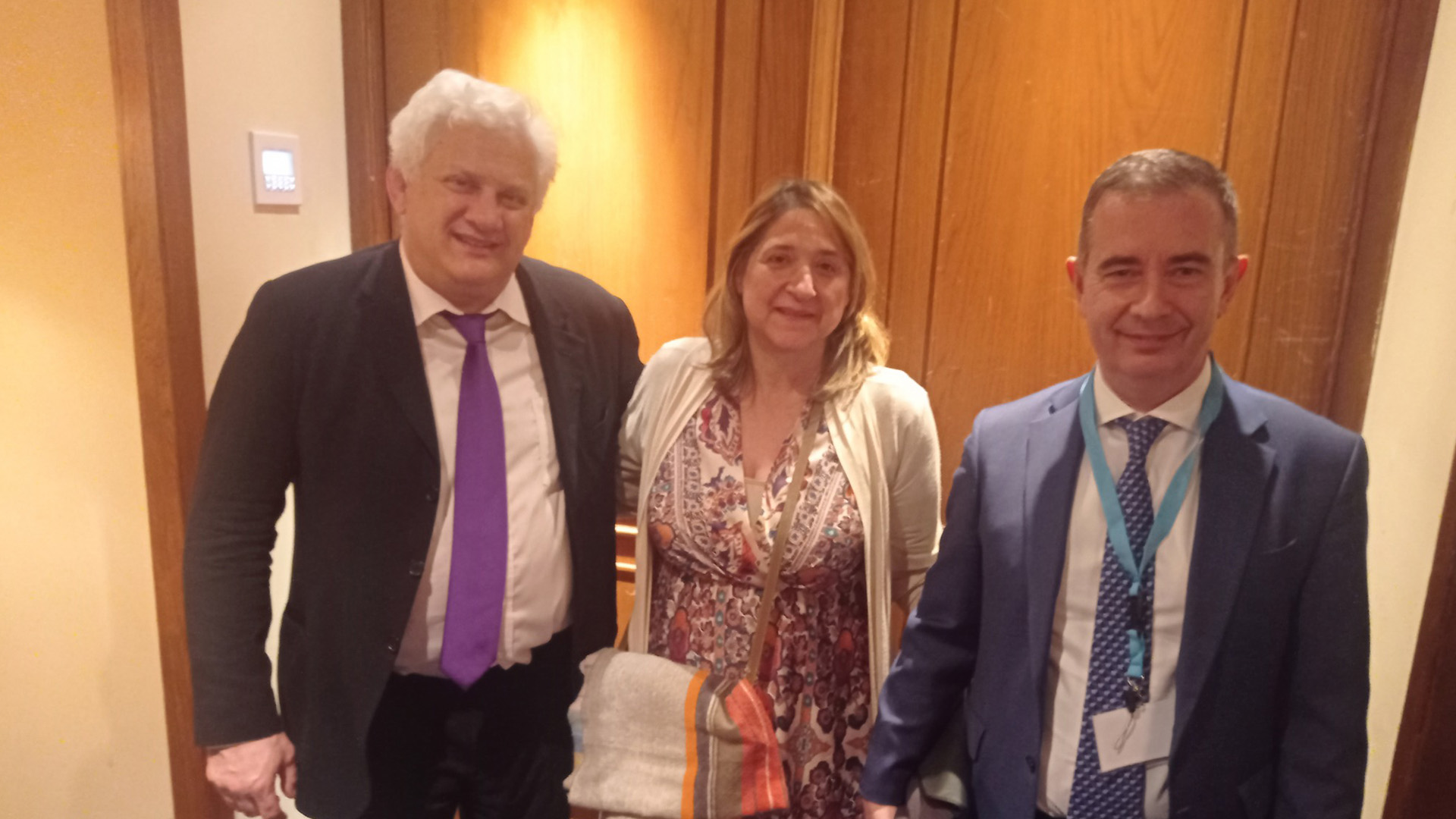WEBINAR: Covid-19 – Its impact on the transplant landscape and lung transplants
On Monday 18 May, the 1st webinar on the impact of COVID-19 on the transplant landscape was held under the scientific auspices of the National Transplantation Organization and the Onassis Heart Surgery Center. The representatives of the Hellenic Cystic Fibrosis Association, Anna Spinou (President), Dimitris Kontopidis (Honorary President), Giannis Spinos, Giorgos Sargiotis, participated in the webinar upon invitation, while on the part of our physicians, Mrs. Diamantea Filia and Mrs. Stagaki Eleni from the C.F. Sismanoglio Unit participated in the webinar. The webinar was moderated by Mr. Ioannis Boletis, President of Onassis Heart Surgery Center and Director of the Department of Nephrology and Transplantation at the Athens General Hospital. Greetings were given by the Minister of Health Mr. Vassilis Kikilias and the President of the Onassis Foundation Mr. Antonis Papadimitriou. The webinar was of great interest and was attended by doctors, nurses, health professionals, patients and the general public.
The panel of speakers included the Deputy Minister of Health, Mr. Vassilis Kontozamanis, who started the discussion with his presentation on the Ministry of Health’s plans for the future of transplantation. Mr. Kontozamanis referred to the successful response to the first wave of the pandemic in Greece and the government’s quick reflexes by implementing immediate measures that safeguarded the protection of patients, such as the implementation of paperless prescription. At the same time, he pointed out that transplants are a priority on the government’s agenda with conditions now being right for the successful development of the transplant programme in the country.
Then followed the most beloved to all of us Mr. Sotiris Tsiodras, Professor of Pathology – Infectious Diseases at the Medical School of the University of Athens, who referred to the research developments in the field of the discovery of the vaccine for the Sars-cov-2 virus and stated that it is very likely that the vaccine will be found by the end of 2020 but will not be able to cover all the countries of the world in quantity.
In his speech on “Impact of COVID-19 on transplantation across Europe, what is the future”, Mr Papaloys Vassilis Papalois, Professor of Transplant Surgery at Imperial College London and President of the European Transplantation Society, referred to “Restarting the transplantation programme by re-evaluating the waiting list of patients for transplantation”. He made it known that transplants in Europe have decreased by 50% and that the immediate need now is to move to the reality of “green” hospitals, which will be free from the risks of pandemic, infections or other emergencies and situations. Finally, he spoke about the need for ethics and bioethics in transplants, the use of telemedicine and tele-education already being implemented in the light of the new coronavirus conditions, and stressed the importance of patient participation in decisions, as they are the final recipients of health services.
Mr. Elias Mosialos, Professor of Health Policy and Director of LSE Health – Greece’s representative to international organisations on COVID-19, continued with his presentation on Health Policy in response to COVID-19 and the National Transplant Plan. He started his speech by referring to the anxieties of patients that he himself lives close to and how scientists will contribute to solving the problems and raising awareness especially for transplant patients in this period. He spoke on the issue of transparency and its contribution to increasing efficiency in the broader planning of the transplant programme in our country. She referred to the benefits of our country’s investment in transplants, citing the example of the treatment of kidney disease, with an increase to 300% of transplants, which is a feasible rate, 600 million euros per year could be saved. The gains would of course not only remain in financial benefits, but above all we would gain years and quality of life for patients, but also in productivity. In the end, he stressed that it is the public health system that should be strengthened by the State, a need that emerged in the midst of the pandemic and that it should mainly acquire a more patient-centered character and keep the qualified and trained staff in Greece.
Particularly interesting was the speech of Mr. Georgios Papatheodoridis, President of the National Transplantation Organization (NTO), Professor of the Medical School of the University of Athens, Head of the University Gastroenterology Clinic and Head of the Liver Transplantation Unit of the “Laiko” General Hospital, on “The impact of COVID-19 on the transplantation landscape in Greece and the policy of the NTO”. Mr Papatheodoridis briefly referred to the transplantation activity in our country before the coronavirus, the insufficient transplantation units and the very low number of solid organ donors as well as the difficulties and delays that occurred during the pandemic period for the transplantation programme. Papatheodoridis said that transplant activity in Greece decreased by 85% compared to 2019 and expressed the view for reorganization of the program in the new conditions of the coronavirus pandemic.
This was followed by Anastasia Kotanidou, Professor of Pulmonology-Intensive Care at the University of Athens and President of the Hellenic Society for Intensive Care, who spoke about ICUs after coronavirus and the new landscape for transplantation. She referred to the problems faced by ICUs, their needs for adequate staffing, such as the 7 coordinators that the Onassis Foundation will provide, the special nurses, and also mentioned that covering them will contribute positively to the increase of transplant activity in Greece.
Finally, Ms. Smaragdhi Marinaki, Assistant Professor of Nephrology, spoke about medical facts of COVID-19 and how the pandemic affects the transplantation sector and the lives of transplant patients. She said that the incidence of infection in transplant patients was lower than that of the general population, around 3% in Europe, which is probably explained by the strict recommendations from transplant centres and the implementation and adherence to isolation measures by patients. He also explained that although the treatment of transplant patients could be changed, the risk to life versus that of graft loss must be considered and individualised.
The webinar also posed the following question to the audience whether every potential organ donor should be screened for SARS-COV2, to which 97% voted yes.
Conclusions on lung transplants
This webinar was an excellent initiative, launching a new form of direct, transparent and detailed information on issues of concern to the scientific community, patients and citizens. In this 1st webinar, there was no specific mention of lung transplants, except that there was a lung transplant during covid-19 in our country, where it was donated to Germany. The general 85% decrease in transplants during covid-19 is obviously affecting the Greek lung transplant program as well. Although it has been started since last summer, to date no lung transplantation has been performed. The start of “early access” to the revolutionary “Trikafta” therapy will be the only “lifeline” for our Cystic Fibrosis patients who are in critical condition and who had started pre-transplant screening without any lung transplantation having been achieved so far. However, there are Cystic Fibrosis patients on the waiting list who are not eligible for the drug “Trikafta” and their survival is directly dependent on the successful initiation of lung transplants. The strengthening of ICUs, through the negative coronavirus context, may be an opportunity to turn the pandemic into an opportunity to increase efforts to increase transplantation and organ donation. Our Association will contribute in every possible way to the initiatives of the Onassis Foundation and the State, so that our patients and every citizen can have the right to a second chance at life.

